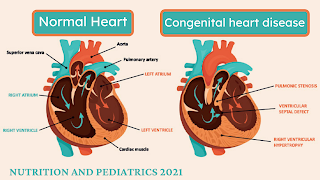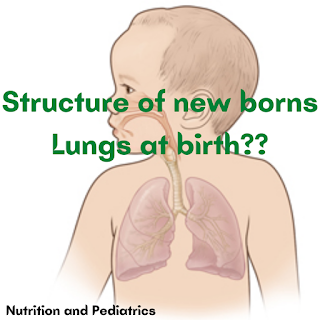Do you know the congenital heart disease is present at birth??
Introduction:-
"Congenital heart defect" is another method of saying your heart had an issue when you
were born. You may have had a little opening in it or something more serious.
Although these can be intense conditions, many can be treated with a medical
procedure. Now and again, specialists can discover these issues during
pregnancy. You probably won't get side effects until adulthood, or you may not
get any whatsoever.
Causes:-
Specialists don't generally have the idea why a child
has a congenital heart defect. They will in general disagreement families
Things that make them more likely include:
• Problems with genes or chromosomes in the child, for
example, Down condition.
• Taking certain meds or liquor or medication
maltreatment during pregnancy.
• A viral contamination, similar to rubella (German
measles) in the mother in the principal trimester of pregnancy.
Types:-
Most congenital heart problems are underlying issues
like openings and flawed valves. For example:
Heart valve defects: One might be excessively limited
or totally shut. That makes it difficult for blood to traverse. Now and then,
it can't get past by any means. In different cases, the valve probably won't
close as expected, so the blood releases in reverse.
Issues with the heart's "wall's": It could
be the ones between the chambers (atria and ventricles) of your heart. Openings
or paths between the left and right half of the heart may make blood blend when
it shouldn't.
Issues with the heart's muscle: These can prompt
cardiovascular breakdown, which implies the heart doesn't siphon as effectively
as it ought to.
Bad Connections among veins: In children, this may let
blood that should go to the lungs go to different pieces of the body all things
being equal, or the other way around. These imperfections can deny blood of
oxygen and lead to organ disappointment.
Symptoms:-
It’s possible for you to have a heart-related birth
defect and not have symptoms. If you do,they can include:
·
Shortness of
breath
·
Problems with
exercise
The symptoms of congenital heart disease in infants
and children may include:
·
A bluish tint to
the skin, fingernails, and lips (doctors call this cyanosis, a condition caused
by a lack of oxygenated blood)
·
Fast breathing
and poor feeding
·
Poor weight gain
·
Lung infections
·
An inability to
exercise
Diagnosis:-
Doctors
may discover a few issues before a child is born. Different issues might be
found in newborn children, children, or grown-ups. The specialist tunes in to
your pulse to check your health. On the off chance that they hear an uncommon
sound or heart mumble, they may arrange more tests, for example,
·
Echocardiogram
·
Chest X-ray
·
Electrocardiogram
Treatment:-
You probably won't require any treatment. Or then
again you may require meds, medical procedure, or different techniques. On the
off chance that you have inherent coronary illness, you'll need to see a heart
expert consistently. Individuals with inborn heart surrenders are bound to have
aggravation of the inward layer of their heart (a condition specialists call
endocarditis), particularly if their heart was fixed or supplanted through a
medical procedure.




Comments
Post a Comment